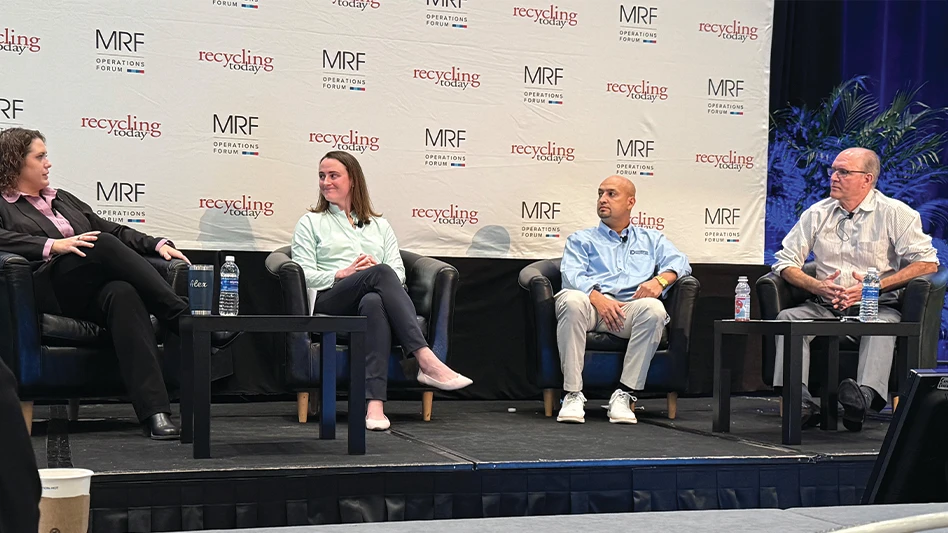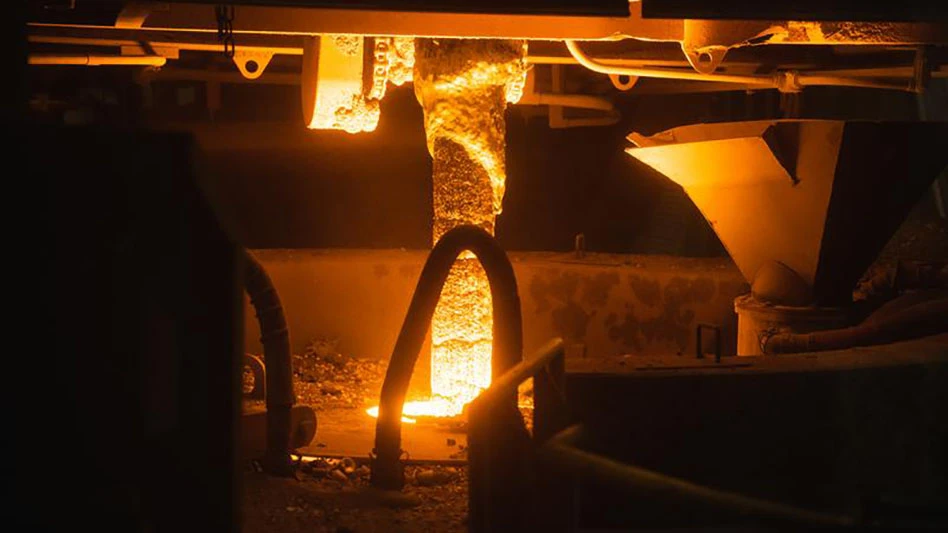RETREAD INFORMATION VIDEO PRODUCED
“Public Sector Fleet Retread Tire Programs,” a new nine-minute video featuring interviews with officials from cities, counties, school and municipal bus fleets, the U.S. Marine Corps and the U.S. Postal Service, is now available from the Tire Retread Information Bureau, Pacific Grove, Calif.
The video highlights the positive experiences these agencies have had with retreaded tires and is designed to be an aid for those in the public sector considering starting a retread tire program for their fleets.
Available at no cost for government agencies and members of TRIB, and for $15 to others, the video can be obtained from TRIB by calling (408) 372-1917.
OIL RECYCLING GETS BOOST IN CALIFORNIA
Grants totaling more than $8.2 million have been approved by the California Integrated Waste Management Board, Sacramento, Calif., to help local governments fund 62 oil recycling programs throughout the state. The funds will be used to establish oil collection/recycling centers, distribute used oil containers, and promote public education about the need to properly dispose of old oil. About 235 million gallons of oil are sold each year in California, and 80 million gallons are recycled annually in the state.
COCA-COLA TO EXPAND RECYCLED BOTTLE USE
The Coca-Cola Co., Atlanta, which claims it was the first to introduce recycled plastic bottles for use by the beverage industry in 1991 in the United States, says it plans expansions and introductions of recycled plastic bottles in Europe. Already, the company has introduced and has been using recycled plastic bottles in Great Britain, Belgium and Switzerland, as well as in the Oceania countries of Australia and New Zealand.
Most recently, Coca-Cola Sweden achieved a milestone by having all of its non-refillable bottles contain recycled plastic – a first in the industry for a country, according to the company.
The recycled plastic bottles are being produced in the 0.5 and 2.0 liter size. The bottles are made with virgin PET for the inner and outer layers of the bottle, and the middle layer is made of recycled PET, giving the containers about a 25 percent recycled material content.
WALDORF PROJECT NEARS COMPLETION
Waldorf Corp., St. Paul, Minn., is nearing the completion of its $38.6 million capital investment project for its recycled paperboard mills in St. Paul and Battle Creek, Mich. The improvements affect the company’s recycling operations, corrugating medium product and boxboard product. Included in the improvement is a new pulping and cleaning system that will allow the company to accept and process more grades of paper.
CUSTOM-PAC EXPANDS OPERATIONS
Custom-Pac Extrusions Inc., Chagrin Falls, Ohio, has increased its manufacturing space from 6,000 to 21,000 square feet, and has added two more plastic extrusion lines. The additional space is capable of housing up to nine additional extrusion lines. Custom-Pac produces plastic lumber and other extruded recycled products, and its Polytimbre is made from recycled post-consumer and post-industrial HDPE.
“This expansion reflects current and projected demand for our plastic lumber and other proprietary products,” says Louis Fow, president of Custom-Pac.
NUCON CORP. MAKES PLASTIC PALLETS
Nucon Corp., Deerfield, Ill., produces repairable plastic pallets for use in industries such as beverage, biomedical, dairy, grocery, produce, trade show, trucking and warehousing. The company claims that the plastic pallets are stronger and lighter than wood pallets. The pallets are manufactured using both new and recycled materials.
ASM NONMETALLICS HANDBOOK RELEASED
ASM Engineered Materials Handbook is now available from ASM International, Materials Park, Ohio. The 1,000-page handbook contains information on the basic nonmetallic structural engineering materials – plastics, composites, ceramics and glass. There’s also data on properties, selection, applications and testing, as well as new sections on recycling plastics, metallizing of plastics, recycling and environmental impact of ceramics and ceramic-matrix composites.
NEW MATERIAL USES RECYCLED NEWSPRINT
Phenix Biocomposites Inc., St. Peter, Minn., has invented a new interior finishing material that uses 40 percent recycled newsprint content to form a material that bonds with wood and has the appearance of granite. Called Environ biocomposite, the material interlocks the cellulose fibers of recycled newsprint – which does not have to be de-inked – with a monolithic biobased resin made from soybean flour and other proprietary ingredients. The material can be used for applications such as furniture, counters, and fascias.

Explore the December 1995 Issue
Check out more from this issue and find your next story to read.
Latest from Recycling Today
- AF&PA releases 2023 paper recycling rate, unveils new methodology
- ARA names new president
- Aurubis invests in Lünen, Germany, site
- ILA, USMX negotiations break down
- Van Dyk hires plastics industry vet to expand footprint in PRF sector
- Li-Cycle closes $475M loan with DOE
- Report highlights consumer knowledge gaps in lithium battery recycling
- AMP names CEO





